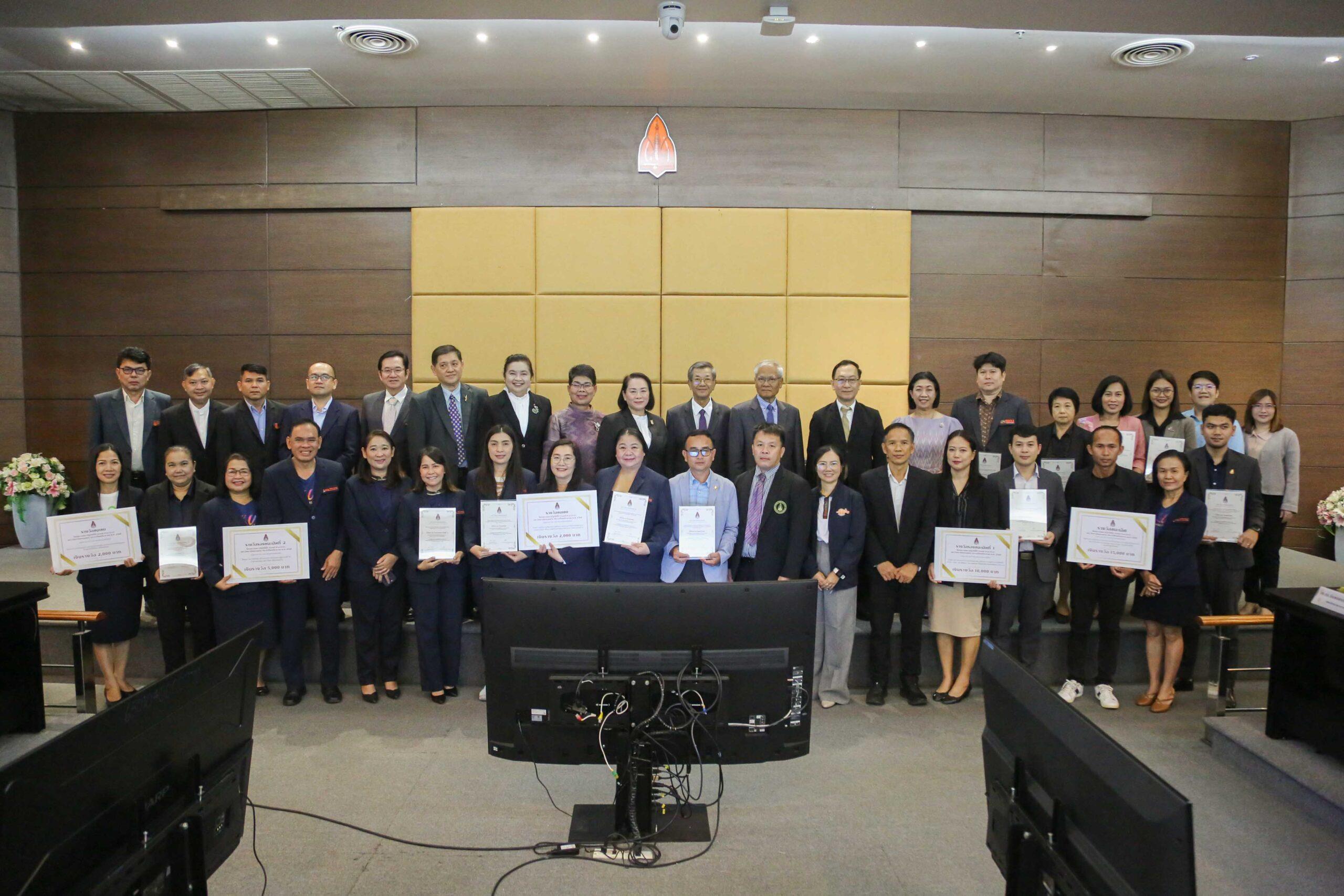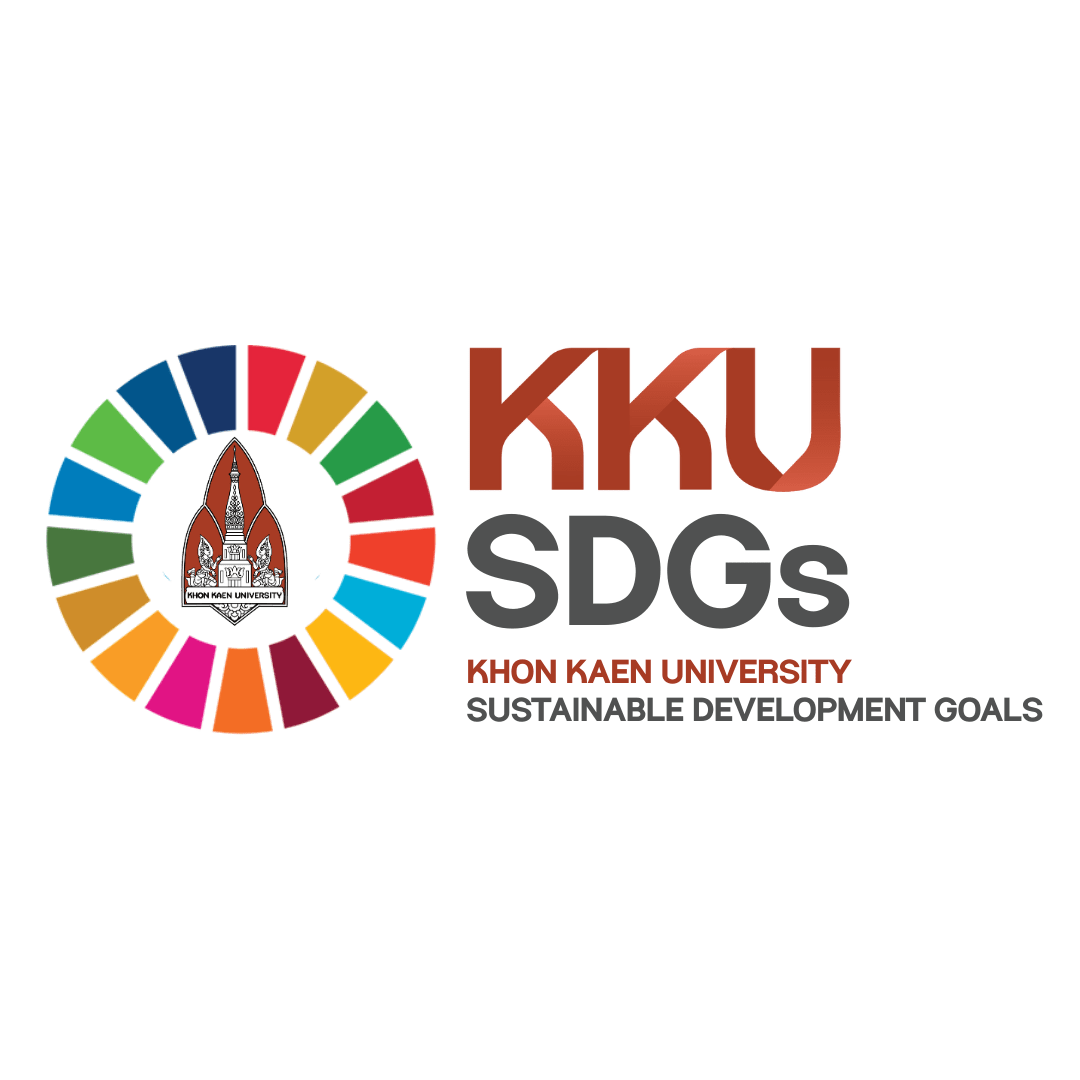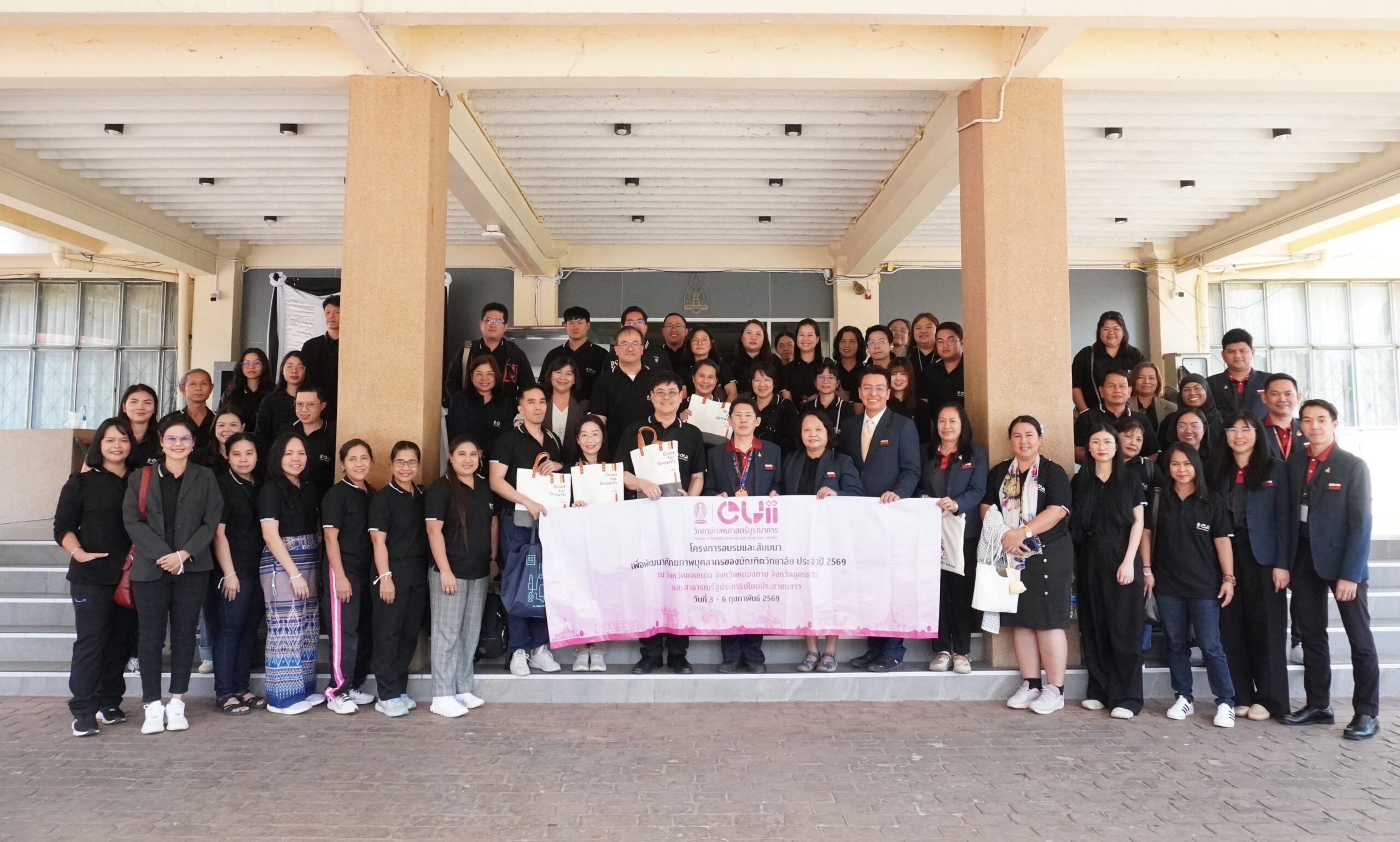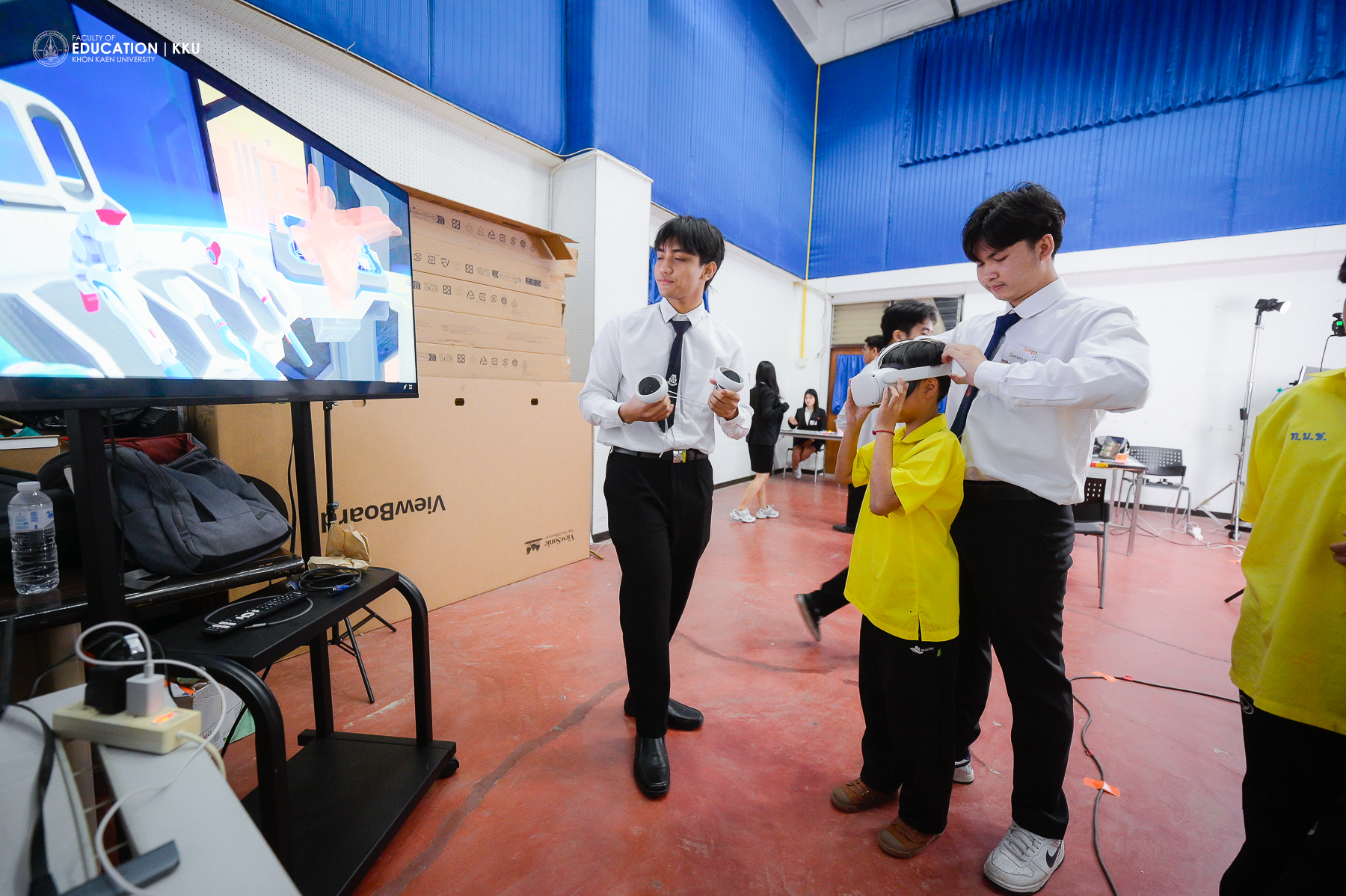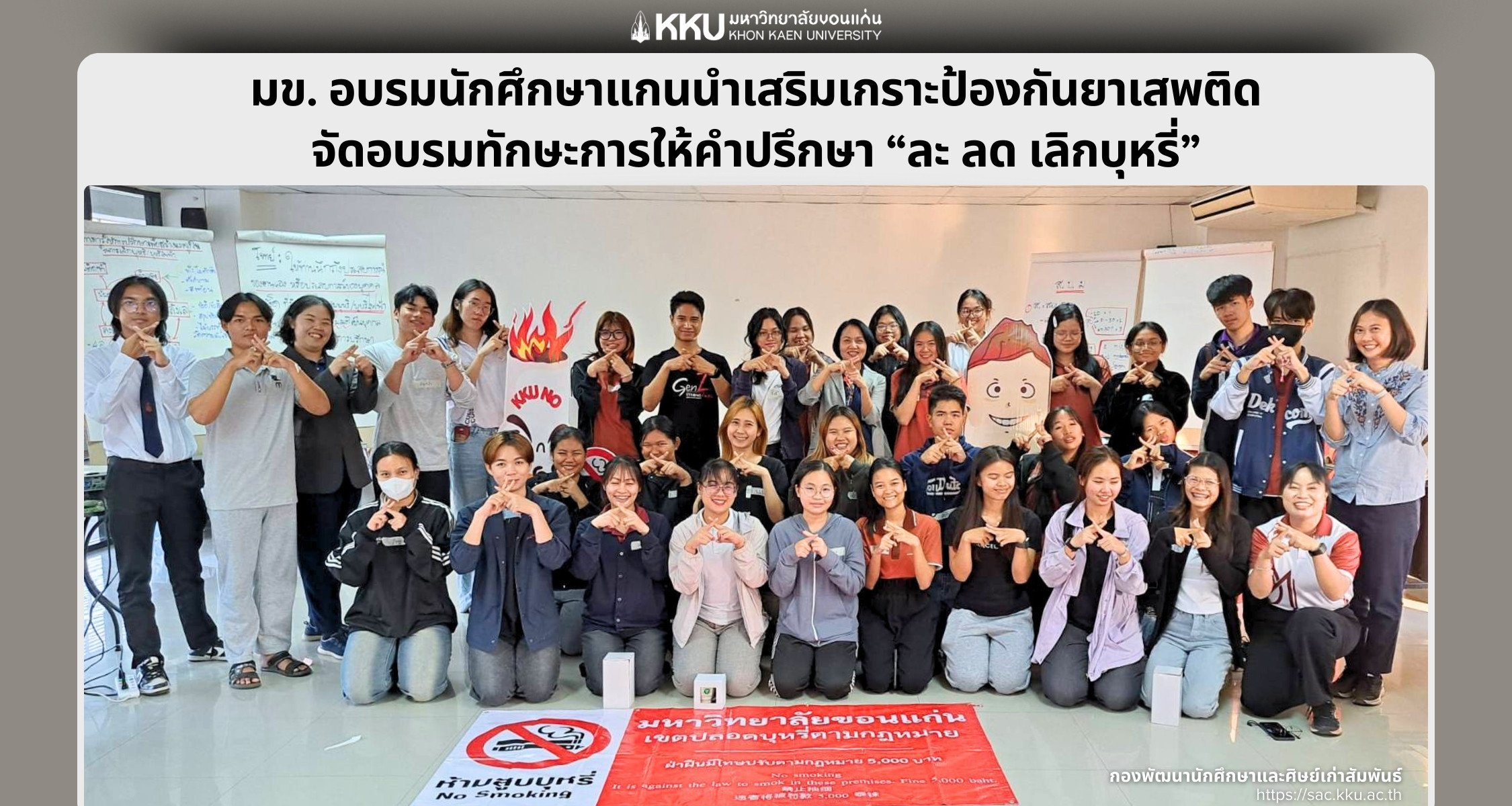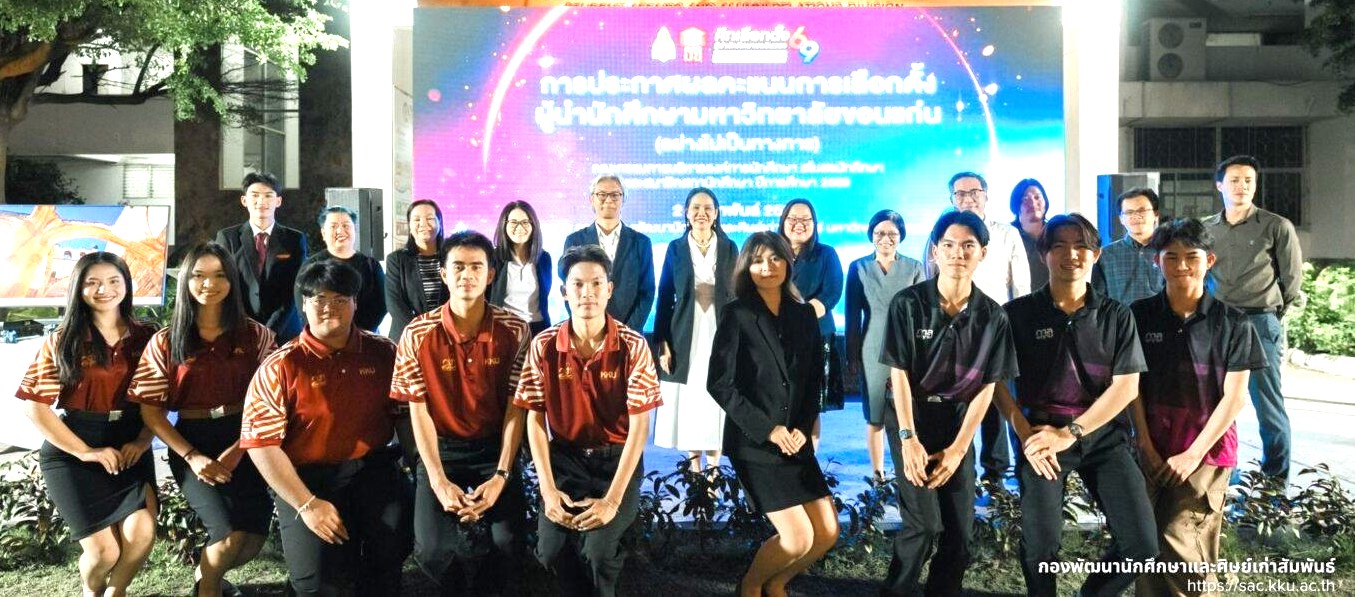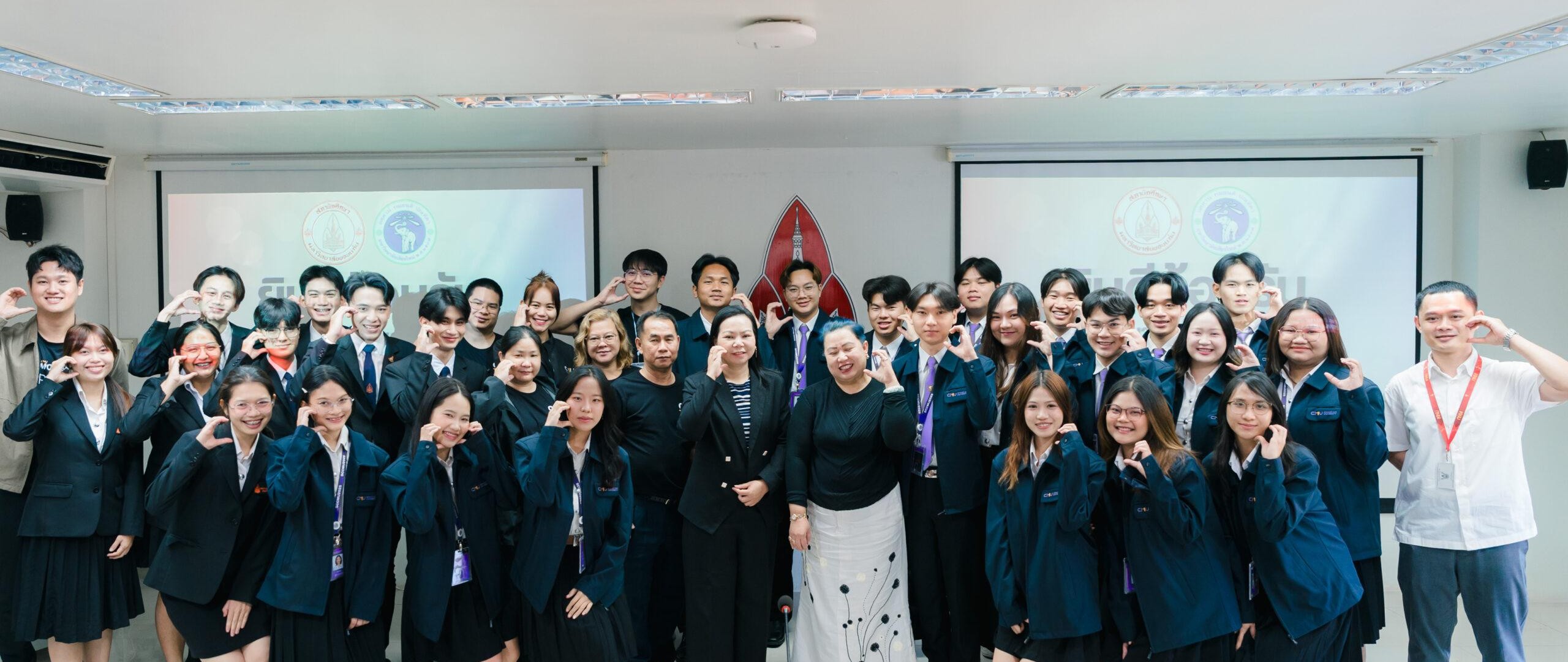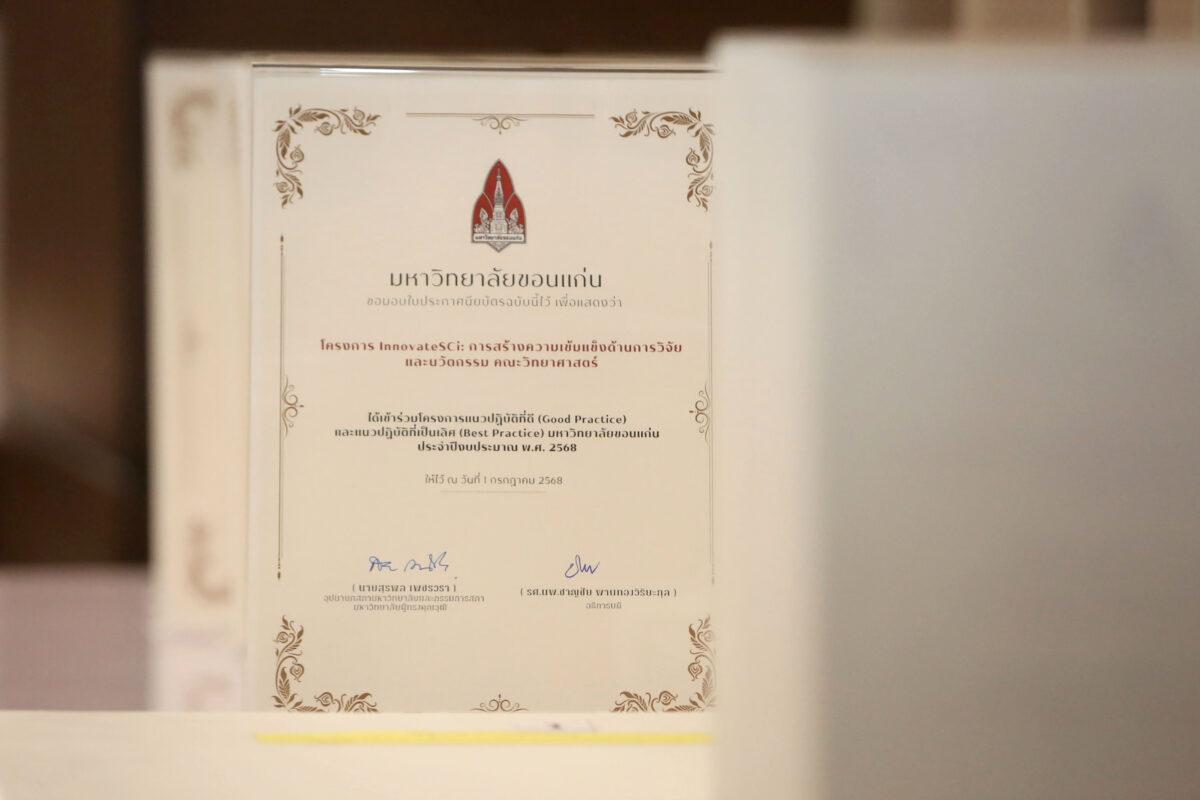 On July 1, 2025, Khon Kaen University, through its Committee on Good Governance, held the Good Practice and Best Practice Awards Ceremony for the 2025 fiscal year. The event was organized to recognize innovative projects that exemplify good governance practices and contribute positively to society. It was held in the Sarasin Meeting Room, 2nd Floor, Sirikunakorn Building.
On July 1, 2025, Khon Kaen University, through its Committee on Good Governance, held the Good Practice and Best Practice Awards Ceremony for the 2025 fiscal year. The event was organized to recognize innovative projects that exemplify good governance practices and contribute positively to society. It was held in the Sarasin Meeting Room, 2nd Floor, Sirikunakorn Building.
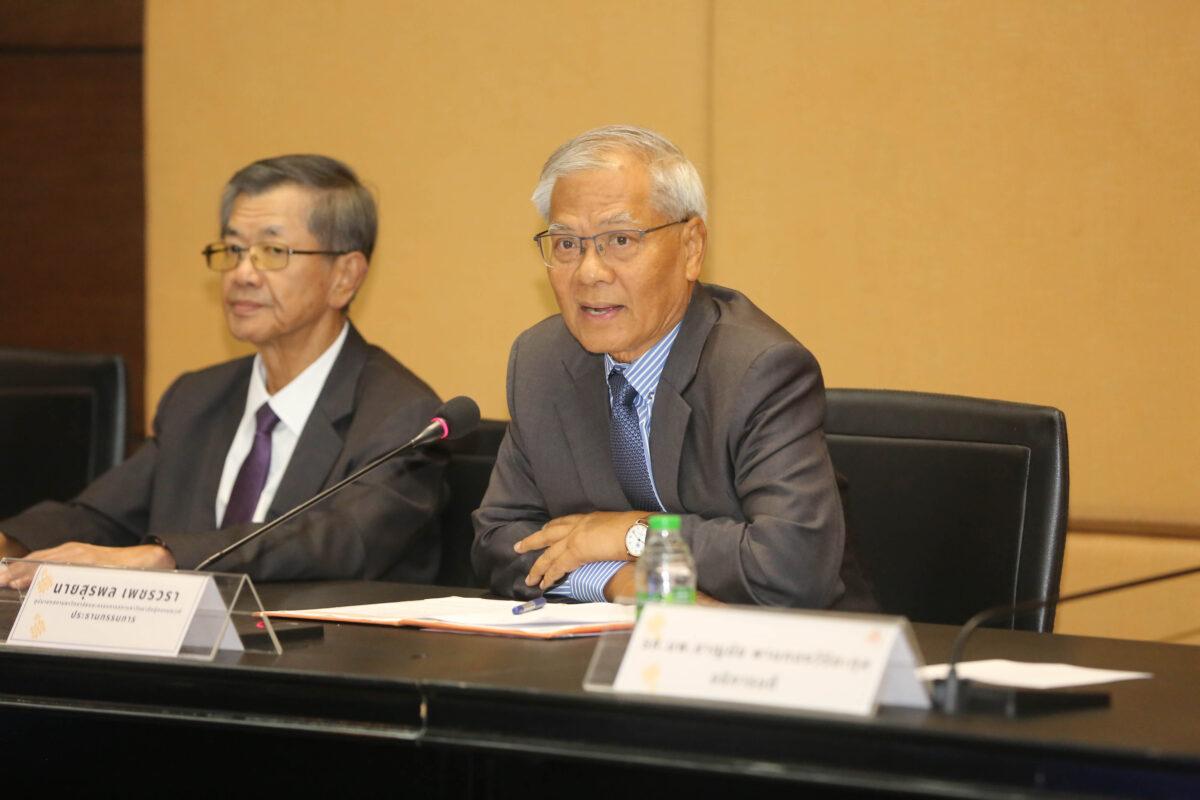
Mr. Suraphol Phetcharavara, Vice Chair of the University Council and Chair of the Good Governance Committee, delivered the opening remarks. Associate Professor Dr. Chanchai Phanthongviriyakul, President of Khon Kaen University, offered congratulations to all award recipients. Ms. Natthasamon Thanakunrangsarit, Vice President for Legal and Corporate Communications and Secretary of the Good Governance Committee, presented an overview of the project and its objectives. Reflections on the evaluation and suggestions for future improvement were shared by Mr. Amnat Promsut and Associate Professor Dr. Darunee Chotithayangkoon, members of the award selection committee. The ceremony was attended by more than 100 guests, including university executives, faculty members, researchers, and media representatives.
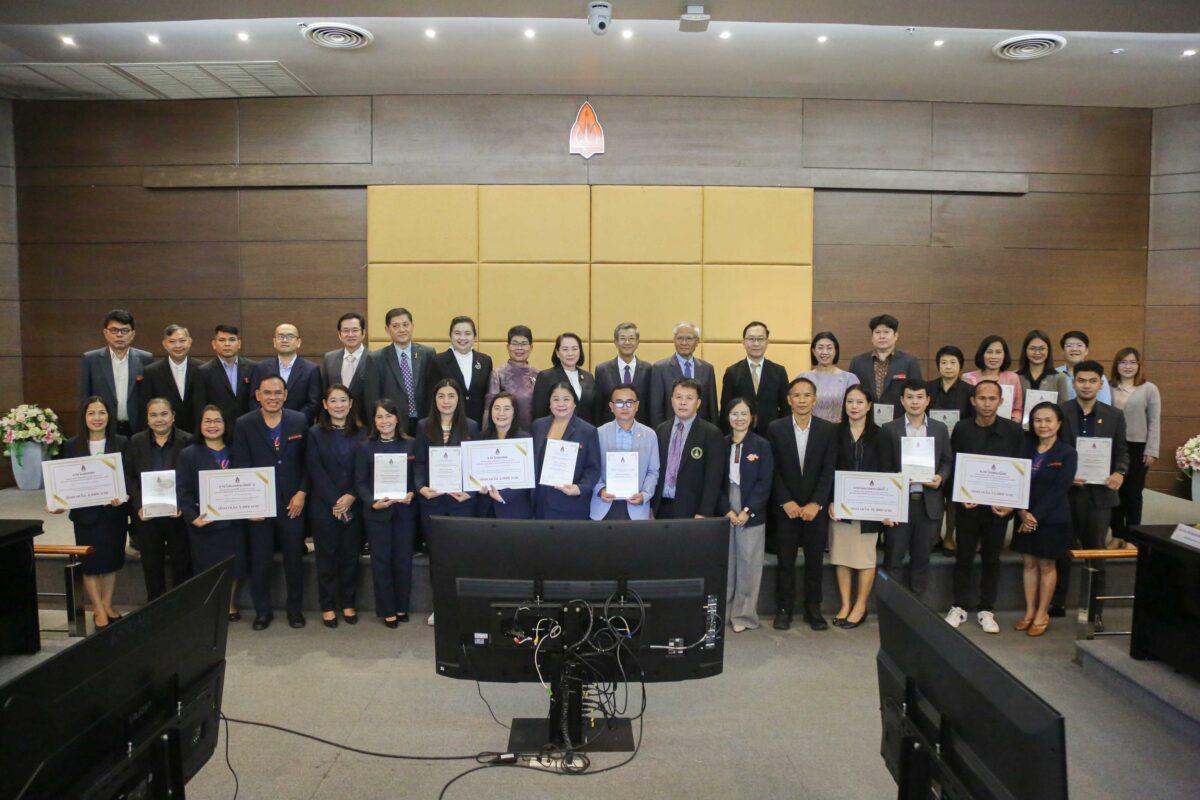
A total of 44 projects were reviewed across various academic fields, resulting in 18 projects receiving awards and 26 additional projects being recognized with certificates of participation.
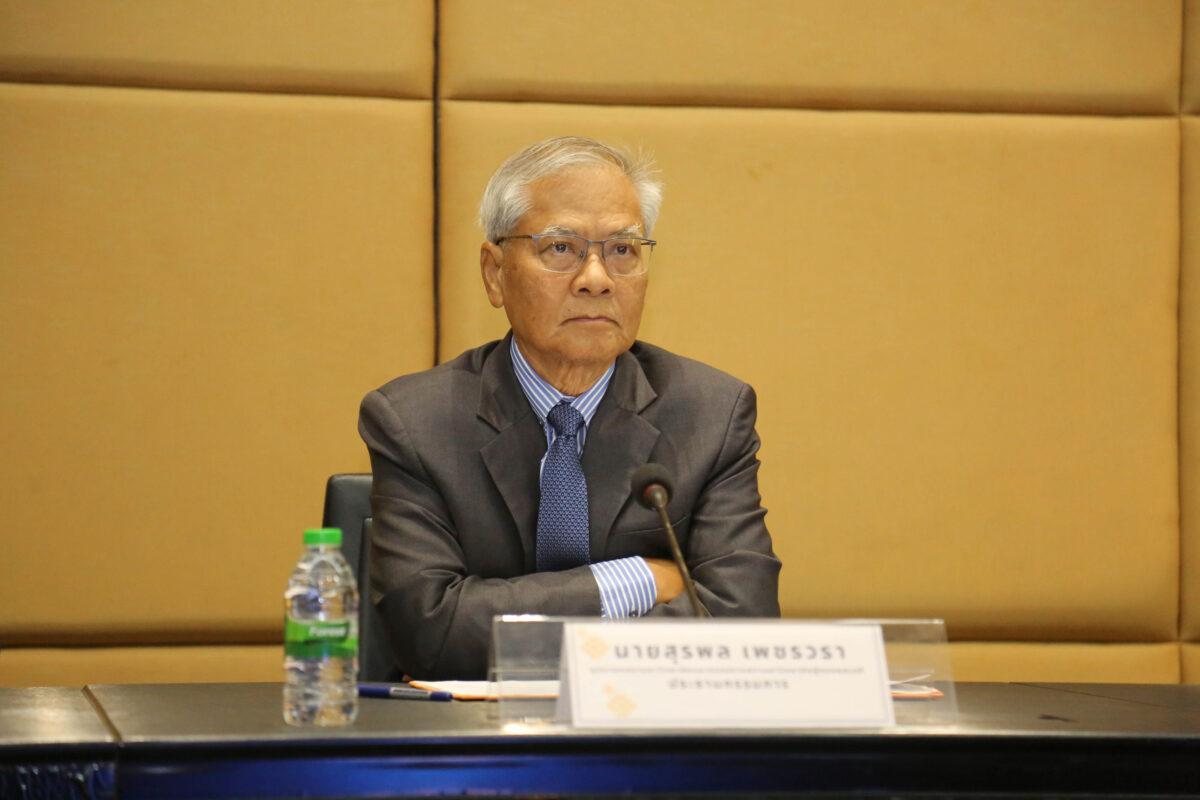
Mr. Suraphol emphasized the importance of strengthening transparency and integrity within the university through good governance. He reaffirmed the Council’s goal of positioning Khon Kaen University as an “open, transparent, and accountable” institution — a vision aligned with the concept of KKU as an Open Society. He highlighted the university’s responsibility in supporting academic freedom, student engagement, and public knowledge on human rights, social justice, and civic participation.
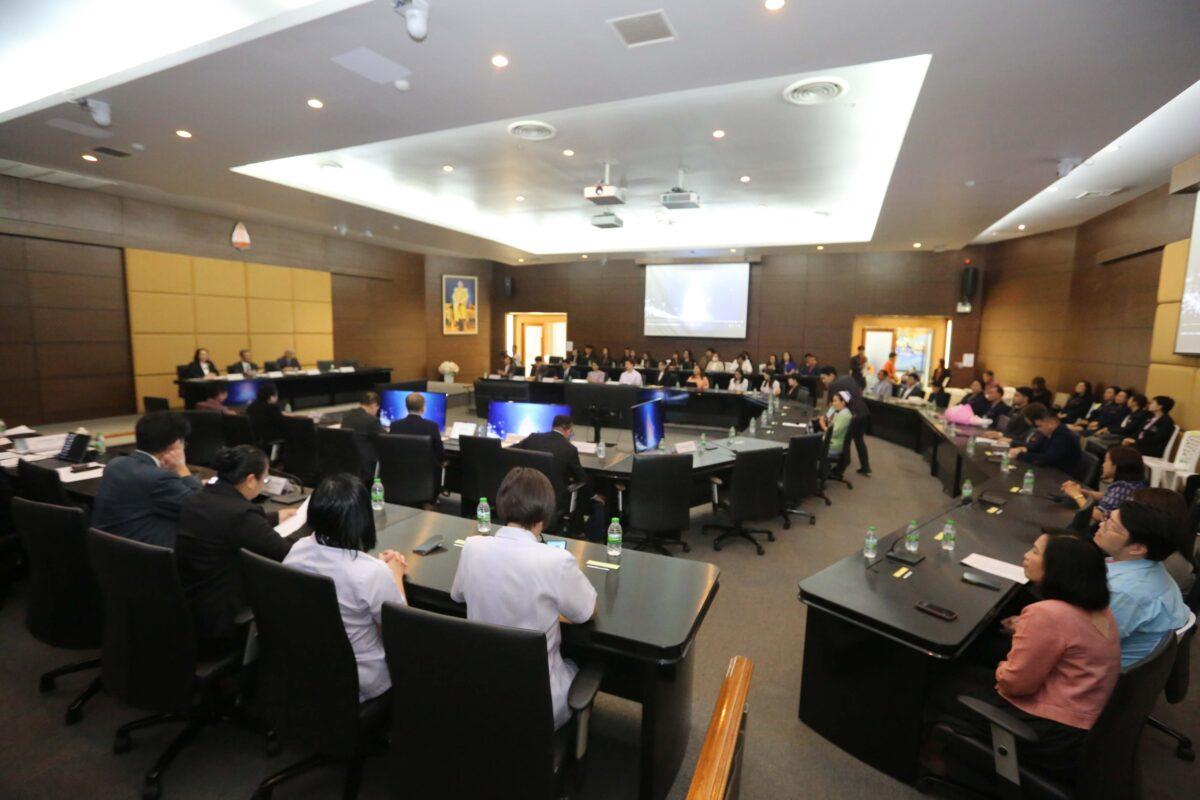
He added that these awards are intended to motivate individuals and departments to improve their performance through principled and transparent management, which in turn promotes efficiency and impact. The recognized projects can serve as models for other departments, supporting the development of stronger internal governance systems across the university.
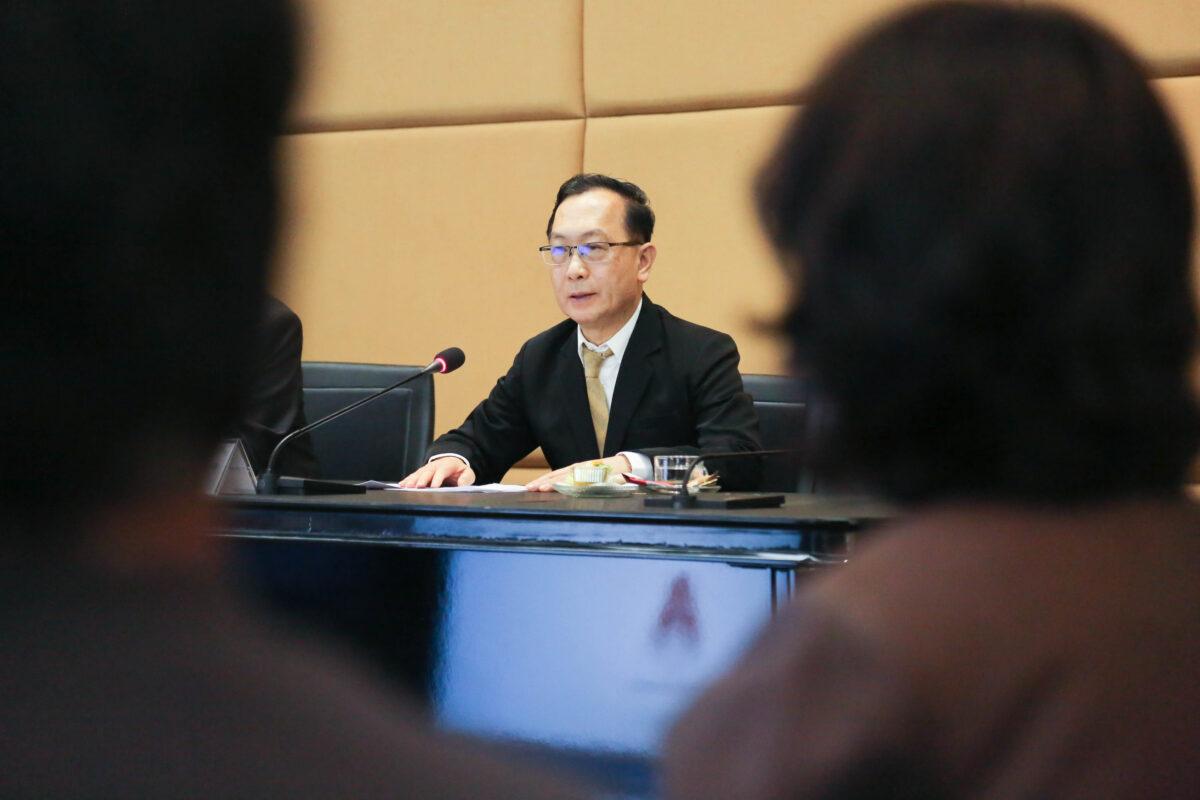
President Chanchai expressed appreciation to the organizing committee and congratulated the awardees, noting that their work serves as a benchmark for excellence and innovation. He commended the recipients not only for their personal and organizational achievements but also for their contributions to the university and community.
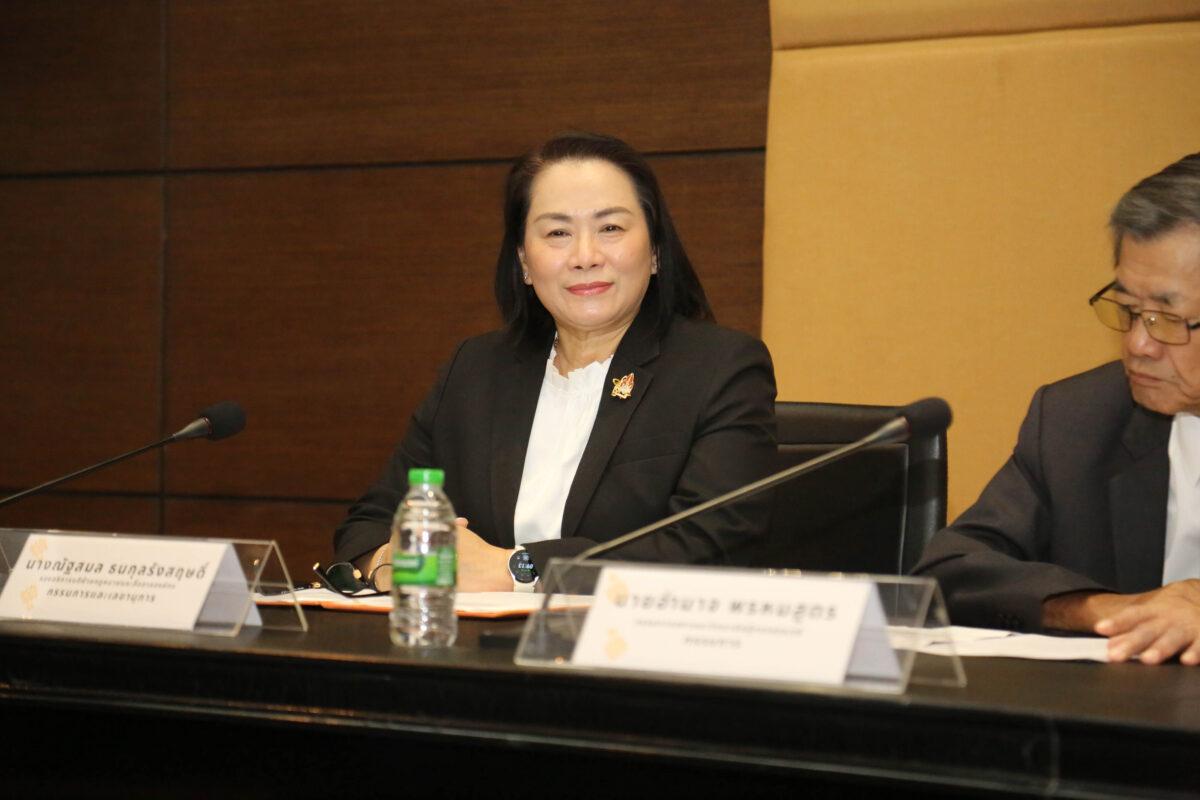
Ms. Natthasamon explained that the awards are part of a broader initiative to institutionalize governance based on ten core principles. The program monitors major university projects with budgets exceeding 50 million baht to ensure compliance with governance standards. Awards were granted to projects from science and technology, health sciences, and humanities and social sciences. These projects were evaluated based on their alignment with institutional missions, clarity of implementation, adherence to governance principles, operational continuity, and scalability. Best Practice projects are distinguished by long-term impact and extension beyond the university to the national level, while Good Practice projects demonstrate sustained internal excellence.
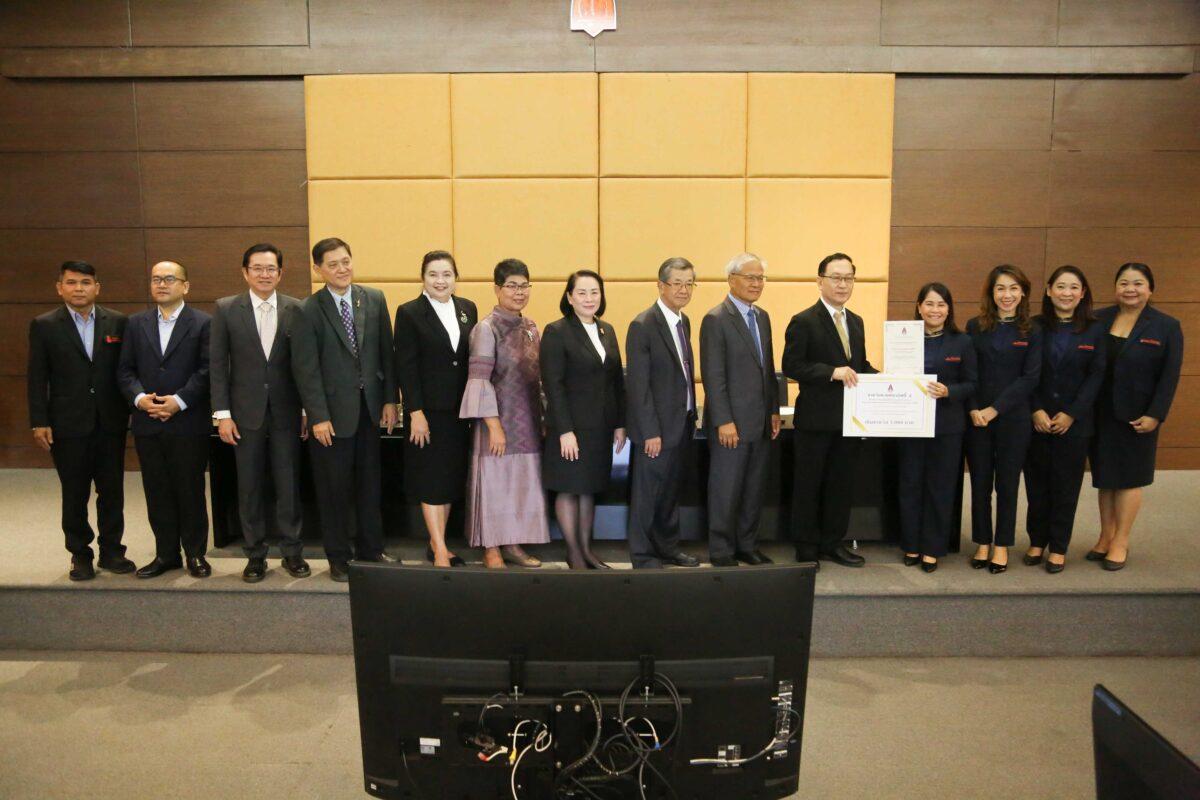
Associate Professor Dr. Darunee Chotithayangkoon shared that each submission was evaluated against five equally weighted criteria, focusing on clarity of objectives, operational structure, governance alignment, consistency of execution, and the potential for expansion. She congratulated all participating teams and noted the impressive level of innovation across submissions.
One of the award recipients, Associate Professor Dr. Issara Kanchak, Dean of the Faculty of Education, was recognized with a runner-up award in the Good Practice category for the project “Creating Educational Opportunities for Students in Remote Areas to Become New-Generation Teachers for Community Schools.” The initiative, under KKU’s “Kru Rak Tin” program, identifies students in underprivileged and remote areas with good academic standing and strong moral character, and supports them in completing a university education with the commitment to return and serve their communities as teachers.
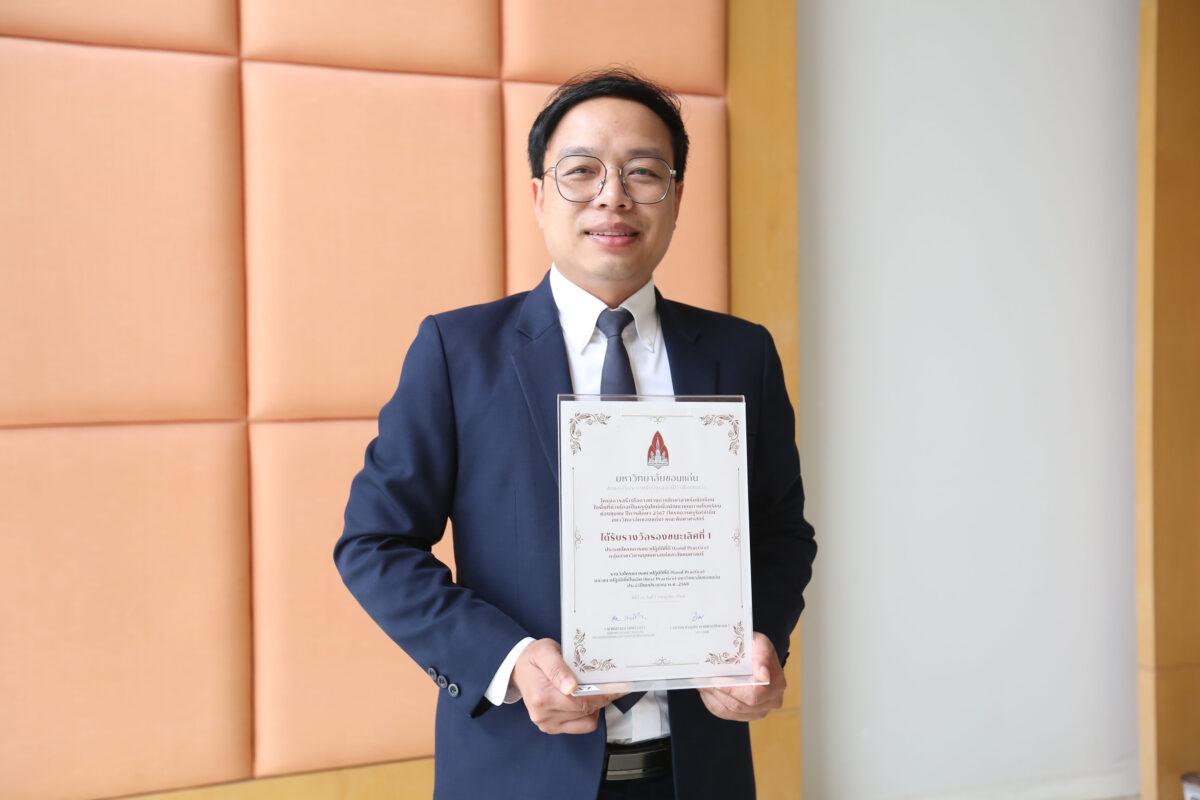
Dr. Issara explained that the project relies on collaboration with community leaders, school directors, and village elders to nominate students based on need and merit. Upon graduation, these students return to teach in their home districts, helping to uplift the quality of education in underserved regions. He emphasized that this initiative not only improves access to higher education but also embodies the values of ethical responsibility and gratitude.
He concluded by thanking the selection committee for recognizing the importance of this effort and reaffirmed the project’s alignment with the university’s mission to serve society. He described the initiative as a process of “polishing diamonds” — transforming deserving youth into future leaders who will give back to their communities and advance the country’s future.

